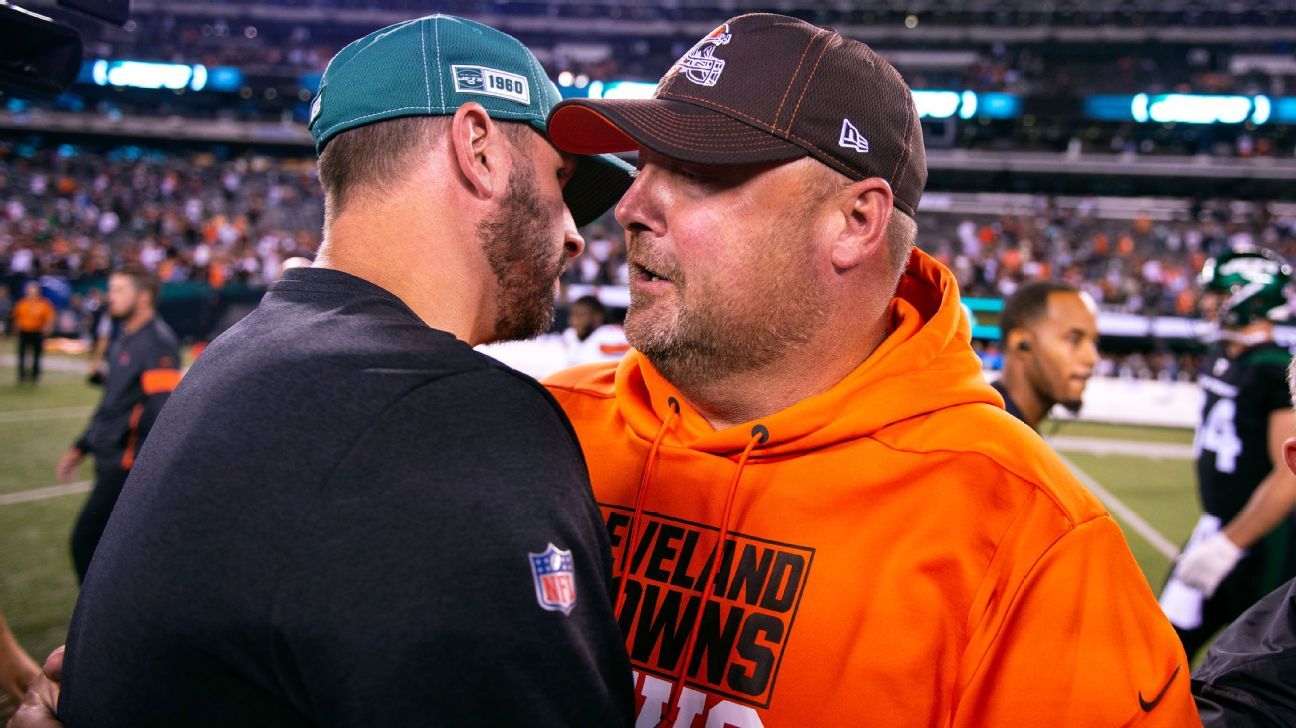It’s not easy being a head coach in the NFL. The season began with eight new coaches — we’re looking at rookie head coaches and veteran coaches with new teams. The eight have a combined record of 17-47-1.
Not everyone has struggled out of the gate — Matt LaFleur has the Packers in first place in the NFC North. How has everyone else fared?
NFL Nation gauges the first-half performance of each new head coach, and NFL reporter Dan Graziano offers them some advice for the second half of the season.
Exceeds expectations
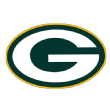
Biggest signs of progress: LaFleur has built relationships — not only with quarterback Aaron Rodgers, which was a must, but with the entire locker room. Most thought LaFleur was hired to revamp the Packers’ sluggish offense and get Rodgers back to an MVP level, but perhaps underrated was LaFleur’s people skills and his ability to build camaraderie among the players. They’ve taken ownership in his program and as free-agent pickup Preston Smith told me: “You can set a standard and have a standard, but players have to enforce that standard and come out every day and be ready to play and play for one another.” Other than the clunker against the Chargers, that has been the case.
What he needs to do better: Not much. It’s hard to find fault with a 7-2 team but if there’s something he needs to get a better handle on, it’s special teams. Though specialists Mason Crosby and JK Scott have performed at a high level, the return game and coverage units have been a recurring issue. It took a while for LaFleur to settle on Shawn Mennenga as the special-teams coordinator when he put together his first staff and perhaps now it will be necessary for LaFleur to get even more involved in those units. — Rob Demovsky
Second-half advice: Win your division. Matt, you’re 7-2 and in first place. You’re the only one of these guys with real playoff expectations for the second half. Your mission is to hold off the Vikings and see if you can’t make a run at a first-round bye. Hot starts are precious so keep things humming with Rodgers and don’t squander yours. — Dan Graziano
Meets expectations
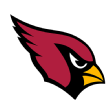
Biggest signs of progress: Kingsbury has adjusted to the NFL game, as evidenced every week. Kingsbury came into this season without any NFL head-coaching experience. It took him some time to figure out what works and what doesn’t, but Kingsbury has found a groove calling plays and running his scheme. He has figured out the importance of running the football and how it’s necessary to stay patient when down a score or two. But overall, Kingsbury has shown he can coach in this league. He just needs the right roster to fit his offense.
What he needs to do better: A few of his decisions have been head-scratching and they’ve cost the Cardinals a shot at winning some games. Against the New Orleans Saints, Kingsbury went for it on fourth-and-1 in Saints territory while down 10-6 about midway through the third quarter. They Cardinals didn’t convert, turning the ball over to the Saints, who scored a few plays later. Early in the season, Kingsbury was calling questionable passing plays in the red zone, where most coaches would traditionally run the ball. Though Kingsbury is far from traditional, he has also realized that he needs to call a traditional game at times to win. — Josh Weinfuss
Second-half advice: Just keep getting reps. It’s pretty unlikely this organization flips over the apple cart two offseasons in a row, so you can keep a long-range focus. Kyler Murray and your offensive plan are showing signs of life. Make this second half about getting better. Murray getting better, the receivers growing around him, you getting better at managing the team through the game … just keep repping. — Dan Graziano
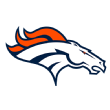
Biggest signs of progress: Fangio has seen the roster grow increasingly younger right before his eyes, either because of injuries, trades or personnel decisions. And he and his staff have coached those young players well. The team is improving, for the most part, week to week as players such as Chris Harris Jr., Courtland Sutton, Derek Wolfe and Justin Simmons are playing some of the best football of their careers, and players who weren’t even on the roster before Aug. 31 have been capable starters in spots, such as Davontae Harris at cornerback.
What he needs to do better: Fangio’s extensive résumé is on defense, but the team’s struggles to score points are now on his watch. QB Joe Flacco‘s criticism that things are a little too close to the vest at times was mostly spot on. Nobody is saying chucking it deep all the time, but they need to be more efficient in how they use their personnel on offense (23 of the 29 sacks given up this season have come when they’re in a three-wide look) and take advantage of matchups where they clearly hold an edge. — Jeff Legwold
Second-half advice: Run a killer defense. The offense isn’t going to be there for you in Year 1, Vic. Without a quarterback or a plan at quarterback, you’re just stuck. So do what you’re great at — go with what got you here. Establish a dominant defense in Denver so you guys can go out on the market and maybe get a quarterback to sign with you. — Dan Graziano
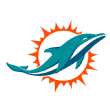
Biggest signs of progress: Cutting down on penalties. Flores surprised some players when he introduced the T.N.T. (Takes No Talent) Wall, making them run to it every time they made a mistake that “takes no talent” like false starts or jumping offside. But it has paid off. The Dolphins have the fewest accepted penalties in the NFL (5.6 per game). There isn’t a lot of talent in Miami, but Flores has gotten his team playing hard and disciplined, which has kept them in games as of late.
What he needs to do better: The Dolphins rank in the bottom four in scoring offense, yardage, scoring defense, yards allowed, passing offense, rushing offense, rushing defense, sacks, sacks allowed, takeaways, giveaways, and turnover differential. But we’ll focus on the last one, their league-worst turnover differential (minus-13). Flores’ defense has forced only four turnovers this season, tied for the fewest in the NFL, which has given them little chance to catch teams once they fall behind. Their 17 giveaways force them into holes way too often. So the discipline has to transfer to this area next. — Cameron Wolfe
Second-half advice: Find out who’s with you. We all know the core of your team’s future lies in the trove of draft picks your front office has assembled over the next two years. But some of the guys on the current team are going to be a part of that future. This second half should be about finding out who they are. You’re going to do a lot of losing. Find out who you can count on to stick with you through tough times. — Dan Graziano
Below expectations
0:58
Jack Del Rio doesn’t agree with the Bengals’ decision to bench Andy Dalton hours before the trade deadline, saying they should’ve traded him instead.
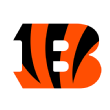
Biggest signs of progress: To Taylor’s credit, the locker room appears to be fully behind its new coaching staff despite the winless start to the season. Players have retained the optimism of their new coach during the buildup to games this season. Establishing a good culture was one of Taylor’s primary objectives when he arrived after two seasons on Sean McVay’s coaching staff with the Rams. So far, Taylor has done that successfully as he tries to pick up his first win.
What he needs to do better: Taylor is still trying to find his way as a playcaller. The coaching staff is trying to instill its philosophy that primarily centers on running 11 personnel (one running back, one tight end) as the base package. However, the Bengals have struggled to find any rhythm and consistency on offense, which is one of the main reasons they are winless. Before Cincinnati’s off week, Taylor started to mix in more diverse offensive packages, which indicates he might be learning to adapt as an offensive coordinator. — Ben Baby
Second-half advice: Find out what you have in QB Ryan Finley. It looks as if your draft pick will be a high one, so it’d be good to know before the draft whether you need to use it on a quarterback. Benching Andy Dalton at this point was the right move because it gives you a long look at Finley — maybe even with WR A.J. Green to help him — and tells you whether he has a chance to be the solution or whether you need to find one in April. — Dan Graziano
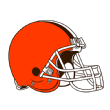
Biggest signs of progress: Save for a brief fumbling spell, Kitchens has gotten the most out of Nick Chubb, who has been among the league’s most effective running backs in his second season. Kitchens was Chubb’s position coach last year before becoming interim offensive coordinator. The defense has been decent for the most part, too, despite injuries to its secondary, and the special teams units are much improved.
What he needs to do better: The Browns are arguably the most undisciplined team in the league, and ultimately that falls on the head coach. Cleveland, the NFL leader in penalties, is the only team to commit 13 or more penalties in a game twice, both resulting in double-digit losses. The Browns are also tied for third in turnovers, trailing only the New York Giants and Tampa Bay Buccaneers. Factor in the dubious challenge flags, questionable clock management and, at times, curious playcalling, and this has been arguably the NFL’s biggest disappointment thus far. — Jake Trotter
Second-half advice: Give them a reason to bring you back. All the high hopes with which they trusted you are circling the drain. You’re not making this year’s playoffs, and if the level of disappointment continues to crescendo, you’re going to convince them all you were the wrong guy for the job. Show them you can bring the team together and finish strong, even with hope lost. That’ll prove you’ve got head-coaching stuff inside of you, and it might keep you around for another year. — Dan Graziano
0:56
With Sam Darnold admitting to “seeing ghosts” on the field in a loss to the Patriots, Mike Greenberg doesn’t see Adam Gase as a good fit for the QB or the Jets.
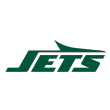
Biggest signs of progress: The Jets have been so bad that it’s really hard to pinpoint one area in which Gase has excelled. The team is a laughingstock because its offense is historically bad (Gase’s area of expertise) and because of off-the-field dramas. Star safety Jamal Adams is feuding with management because he was dangled in trade talks, and former guard Kelechi Osemele was cut because he had shoulder surgery without the blessing of the team — an ugly divorce that made the organization look bad. In Gase’s defense, there hasn’t been a full-blown mutiny in the locker room (yet), so that’s something. He also has managed to keep his cool with the media, another small victory.
What he needs to do better: Gase’s pet project, QB Sam Darnold, has regressed under his tutelage. Gase has failed to create a pass-protection scheme that protects the franchise’s No. 1 asset from a weekly beating. There have been too many blown assignments and mental errors on offense. He hasn’t figured out a way to get versatile RB Le’Veon Bell involved in the offense on a consistent basis. Granted, he’s working with a sub-standard offensive line, but there has been no evidence that suggests he can get replacement-level players to overachieve. Gase’s game management has been suspect, and there’s no excuse for that because he’s a fourth-year head coach. We could go on, but you get the point. — Rich Cimini
Second-half advice: Get Darnold on track. There’s no way this season can possibly live up to any win/loss expectations you had for it, and frankly, they’re calling for your head already. Your best bet to get the angry mob off your back is to get Darnold playing at a higher level by the end of the year than he is right now. What the Jets’ fan base wants is hope, and if they think Darnold is on the ascent, that’ll help. — Dan Graziano
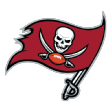
Bruce Arians, Tampa Bay Buccaneers (2-6)
Biggest signs of progress: Arians has infused an air of confidence that has been much-needed inside the building after Dirk Koetter spent three years learning on the job. Arians assembled a strong coaching staff composed of some top-caliber teachers and advisers, including one of the best defensive minds in the business in former New York Jets head coach Todd Bowles. Arians’ biggest asset is his ability to gauge what players need psychologically, infusing discipline and encouragement. The two bright spots have been pulling road upsets over the Carolina Panthers in Week 2 and Los Angeles Rams in Week 4. They also nearly beat the Seattle Seahawks on the road in overtime in Week 9.
What he needs to do better: Arians’ assessment this summer that the “secondary has been fixed,” couldn’t have been more wrong, and you could argue that it set an extremely inexperienced group up to fail. They continue to give up chunk plays on defense and have struggled coming out at halftime. They’re also blowing fourth-quarter leads. Offensively, there have been communication issues resulting in receivers running the wrong routes and even a collision in the backfield against the Tennessee Titans that could only be described as “Butt Fumble 2.0” — understandable in Week 1 but in Week 8, it’s unacceptable. Quarterback Jameis Winston doesn’t appear any closer to resolving his turnover issues. There also has been questionable playcalling and use of personnel from offensive coordinator Byron Leftwich, who appears to be going through his own set of growing pains as an inexperienced playcaller. — Jenna Laine
Second-half advice: Win some games, man. You have the fourth-best scoring offense in the league and you’ve lost four games in a row. We all know the organization has to make a Winston decision in the offseason, but that decision will be a lot more fun to make if you guys can finish the season strong and translate some of that offensive production into wins. — Dan Graziano
